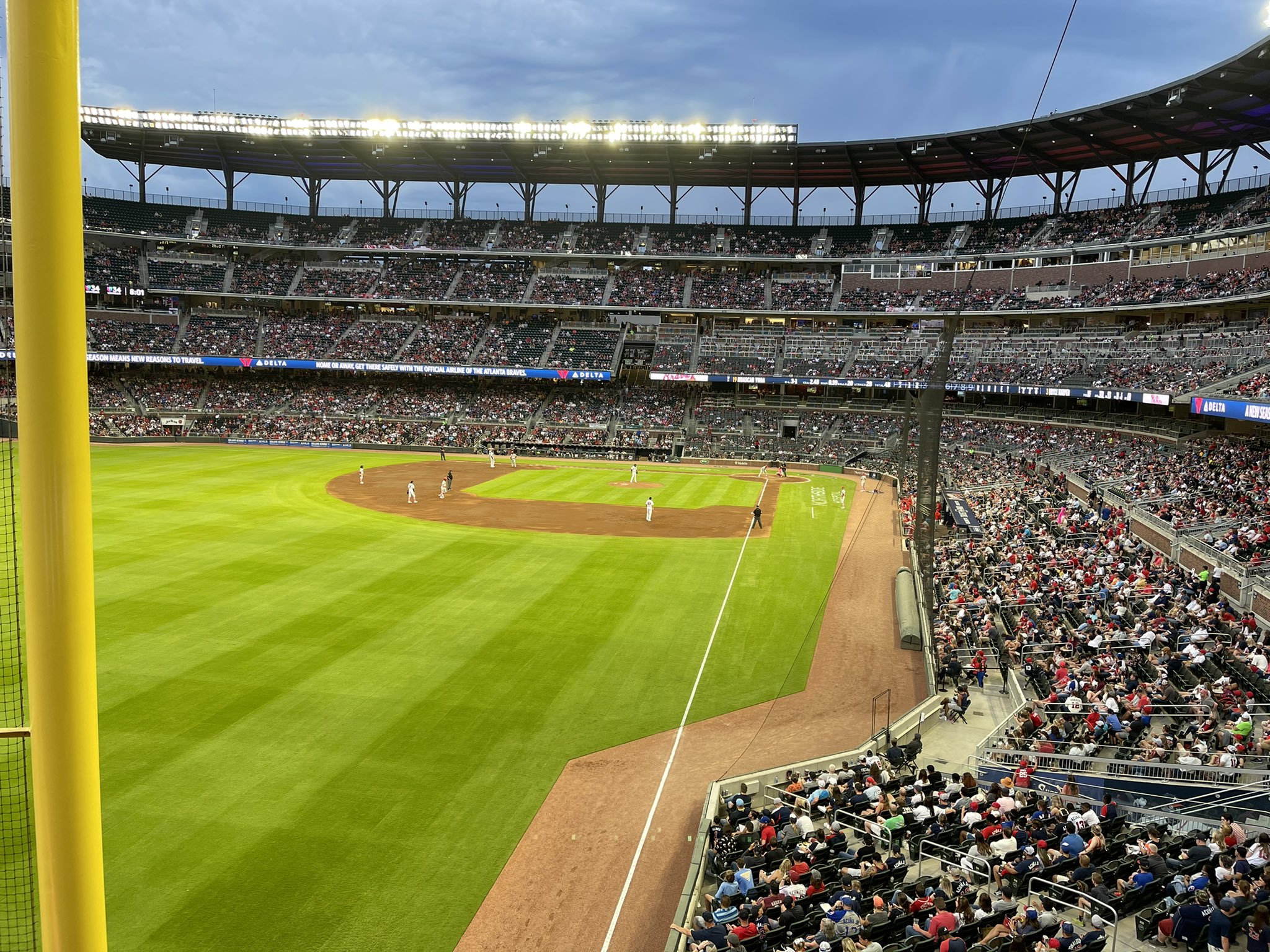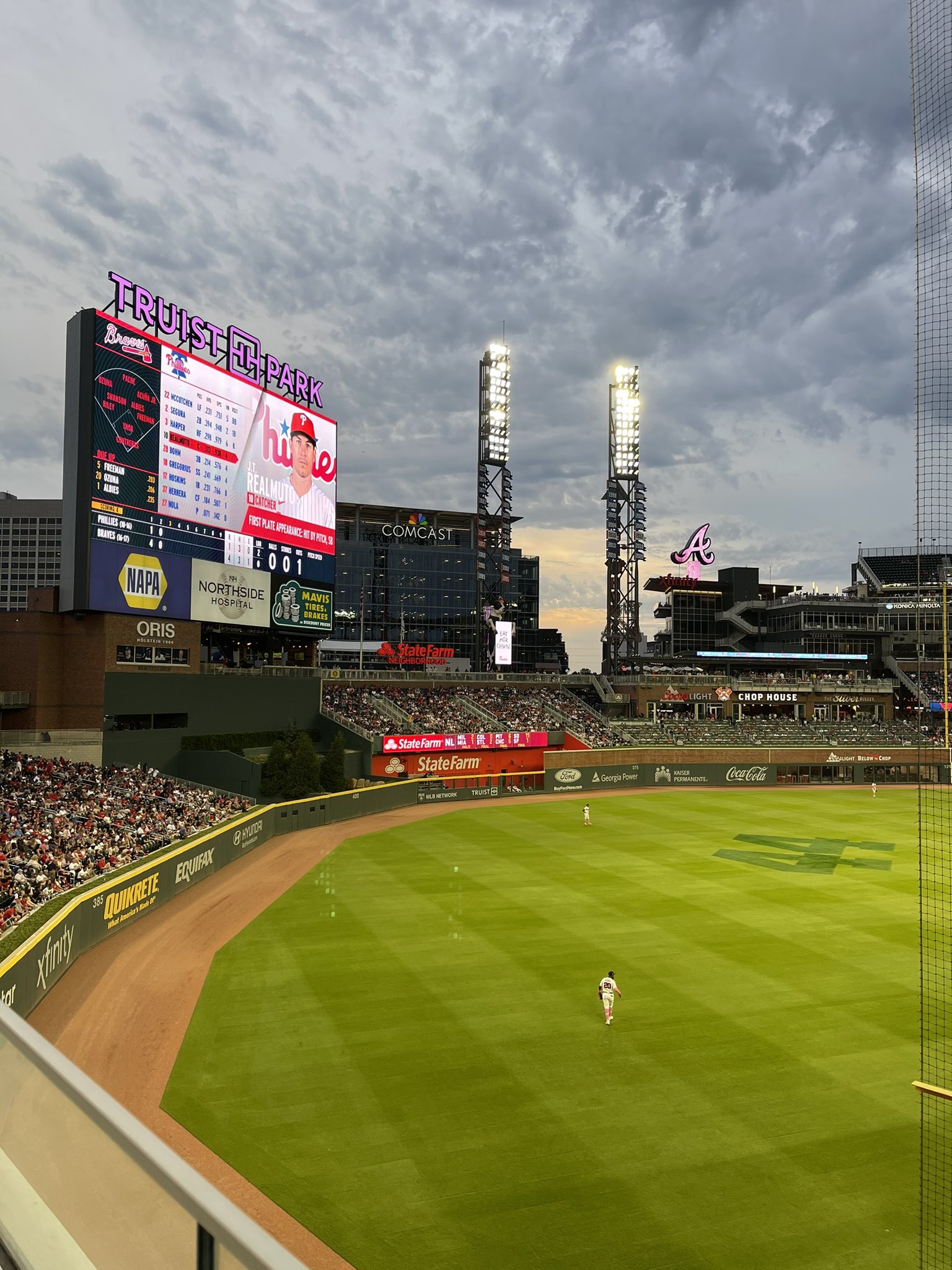The news of the MLB’s decision to move their All-Star Game out of Georgia has sparked debate. Some fans and supporters are conflicted about the role politics are playing in sports while others are happy to see the MLB taking a stance.
The feedback received from the MLB’s decision has led to the questioning of whether politics should play a role in sports. Regardless of the outspoken support/criticism, MLB has already chosen its side on the situation and is moving forward with plans for their 2021 all-star game. With the game being moved from Truist Park in Atlanta Georgia to Coors Field in Denver Colorado, concerns about the actual game and venue are not the talk of the town. Instead, the bigger story relates not only to the decision taken by Major League Baseball but the actual reasoning behind the relocation of the game.
The 98-page election law passed in Georgia brings significant changes to the voting process in the state. In summary, according to The New York Times and CBS News: early voting was expanded in most Georgia Counties, ID is now required for in-person and mail-in voting, there is a shorter time-frame to request absentee ballots and there are regulations of drop boxes. Furthermore, food and drink distribution poses a risk for misdemeanor charges and there is a new hotline for voters to call in acts of fraud or illegal activity.
The issue several groups, politicians, activists, and regular voters have with these changes is that this new legislation targets voters by suppressing their votes and their opportunity to vote. Hundreds of companies including Apple, Amazon, Microsoft, Starbucks, Netflix, and Twitter released a signed statement “in opposition to any discriminatory legislation or measures that would restrict ballot access,” according to CNBC. On the other hand, those in favor of the changes view the introduction of this new legislation as a way to combat voter fraud and maintain the fairness and security of elections in our country. Support for the new legislation includes former President Donald Trump, who called for boycotts of the MLB and Coca-Cola, as well as Senate Minority Leader Mitch McConnell, who stated that companies and their executives should “stay out of politics.”
The influence of the MLB’s decision to move the game out of Georgia may stem from a multitude of reasons. Dr. Richard Lapchick, Professor and Endowed Chair of the DeVos Sport Business Management Program at the University of Central Florida brought insight into the decision made by the MLB. Recognized and often described as “the racial conscience of sport”, Dr. Lapchick offered his understanding of the situation stating “MLB’s response demonstrated its disapproval for governmental policies which contribute to voter suppression for those living in urban areas.”
“When decisions are made involving politics, certain constituency groups will likely disagree with the result. However, despite the right decision being unpopular among some, it is a necessary stand to take in support of equal rights for marginalized communities,” he said.
With MLB commissioner Robert Manfred announcing before the start of the season the plan to use the league as another platform to push for social change, moving the game from Georgia does not fall out of line. To some fans of the sport, the decision to move the game was another step in the right direction. To others, the decision showed that the MLB was only moving the game to avoid conflict and outrage from the game being played in a state that will now further restrict the voting process. Dr. Lapchick also spoke on the reaction to the decision, stating that “I believe MLB knew their decision was going to draw controversy no matter if they moved the All-Star game or not”. “MLB’s decision to move the All-Star game was bold and necessary. While its lasting impact is yet to be seen, I am hopeful that decisions like these made in support of social justice and making the game more inclusive will bring more fans to the sport.”
America’s pastime is changing with the times. What is yet to be seen is the impact the decision will have on the game in July and for baseball in the future. With some fans calling for a boycott of the All-Star game and even the MLB in general, how the move will affect revenue, viewership, attendance, and reception season long will be newsworthy. The MLB can still expect thousands of fans to attend and tune in to the All-Star game in July as the situation surrounding COVID-19 might allow more fans to attend in Colorado.
What the MLB cannot expect is how using their platform to help push for social change will affect how viewers perceive the game. Despite calls for boycotts of the game of baseball, MLB is reporting record-high streaming viewership to the beginning of their season. According to an article published by CNBC, “MLB said live games on its over-the-top service, MLB.TV, garnered more than 1.3 billion minutes of streams from opening day, April 1, through April 18. That’s a 12% increase compared with the first 18 days of the shortened 2020 season and up 43% compared with the same time frame for the 2019 season, the league said in a release.”
Political or social activism playing a role in sports is not uncommon nowadays. Colin Kaepernick began a movement in the NFL as he began protesting racial injustice and police brutality in America by sitting and then kneeling during the national anthem at NFL games. In August of 2020, several NBA playoff games were postponed as teams refused to play in order to bring awareness to social injustice issues. In February of 2021, The U.S. Soccer Federation’s National Council formally voted to repeal a policy that required players to stand for the national anthem, according to ESPN. While the decision to bring in social/political activism may not always be well-received by a percentage of fans watching, Dr. Lapchick provides that “Athlete activism is absolutely necessary as athletes are public figures that have the power to inspire large audiences across the world. Leagues, such as MLB, should encourage these acts in support of all its players in an effort to make the game more inclusive and bring about societal change.”
It is looked upon nowadays that sports aren’t just being used as a getaway from reality and as a form of entertainment. They are becoming platforms that well-known figures in the sports world are using to speak up on prevalent social/political issues affecting people across the nation.




